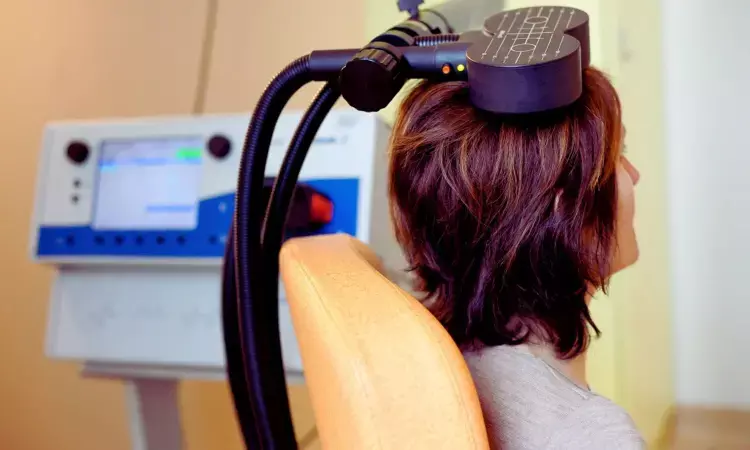- Home
- Medical news & Guidelines
- Anesthesiology
- Cardiology and CTVS
- Critical Care
- Dentistry
- Dermatology
- Diabetes and Endocrinology
- ENT
- Gastroenterology
- Medicine
- Nephrology
- Neurology
- Obstretics-Gynaecology
- Oncology
- Ophthalmology
- Orthopaedics
- Pediatrics-Neonatology
- Psychiatry
- Pulmonology
- Radiology
- Surgery
- Urology
- Laboratory Medicine
- Diet
- Nursing
- Paramedical
- Physiotherapy
- Health news
- Fact Check
- Bone Health Fact Check
- Brain Health Fact Check
- Cancer Related Fact Check
- Child Care Fact Check
- Dental and oral health fact check
- Diabetes and metabolic health fact check
- Diet and Nutrition Fact Check
- Eye and ENT Care Fact Check
- Fitness fact check
- Gut health fact check
- Heart health fact check
- Kidney health fact check
- Medical education fact check
- Men's health fact check
- Respiratory fact check
- Skin and hair care fact check
- Vaccine and Immunization fact check
- Women's health fact check
- AYUSH
- State News
- Andaman and Nicobar Islands
- Andhra Pradesh
- Arunachal Pradesh
- Assam
- Bihar
- Chandigarh
- Chattisgarh
- Dadra and Nagar Haveli
- Daman and Diu
- Delhi
- Goa
- Gujarat
- Haryana
- Himachal Pradesh
- Jammu & Kashmir
- Jharkhand
- Karnataka
- Kerala
- Ladakh
- Lakshadweep
- Madhya Pradesh
- Maharashtra
- Manipur
- Meghalaya
- Mizoram
- Nagaland
- Odisha
- Puducherry
- Punjab
- Rajasthan
- Sikkim
- Tamil Nadu
- Telangana
- Tripura
- Uttar Pradesh
- Uttrakhand
- West Bengal
- Medical Education
- Industry
Accelerated intermittent theta-burst stimulation Shows Promise in Treatment-Resistant Bipolar Depression: JAMA

USA: A small randomized trial of 24 patients found significant depression reduction in people with treatment-resistant bipolar disorder with accelerated intermittent theta-burst stimulation (aiTBS). The findings, published in JAMA Psychiatry, suggest that aiTBS in carefully selected patients could be a new treatment option for this difficult-to-treat illness.
In patients with treatment-resistant bipolar disorder, participants who underwent aiTBS treatment showed significantly reduced depression scores post-treatment compared to those who received sham treatment, the researchers reported.
Bipolar disorder (BD) is a chronic and disabling condition primarily characterized by episodes of depression that dominate the course of the illness. Recent studies have shown significant progress in the clinical effectiveness of transcranial magnetic stimulation for treatment-resistant major depressive disorder (MDD) through an accelerated regimen known as intermittent theta-burst stimulation (aiTBS). However, whether this treatment approach is effective for individuals with treatment-refractory BD remains uncertain.
Against the above background, Yvette I. Sheline, Perelman School of Medicine, University of Pennsylvania, Philadelphia, and colleagues aimed to evaluate aiTBS effectiveness for treatment-refractory BD.
For this purpose, the researchers conducted a randomized clinical trial from 2022 to 2024, including participants with treatment-resistant BD with moderate to severe depressive episodes referred from the Penn Bipolar outpatient clinic.
The participants in the study had experienced failure with two or more previous antidepressant treatments as per the Antidepressant Treatment History Form criteria, did not have any other primary psychiatric diagnosis, were taking a mood stabilizer for at least four weeks, and had a Montgomery-Åsberg Depression Rating Scale (MADRS) score of 20 or above.
The researchers used resting-state functional magnetic resonance imaging before the treatment to compute personalized left dorsolateral prefrontal cortex target by connectivity to the subgenual anterior cingulate cortex. Patients were randomized in a 1:1 ratio to per day ten sessions of imaging-guided active or sham aiTBS for five days with one session per hour at 90% resting motor threshold for 90 000 pulses total.
Patients were randomized 1:1 to 10 daily imaging-guided active or sham aiTBS sessions for five days. The treatment regimen consisted of one session per hour, administered at 90% of the resting motor threshold, totaling 90,000 pulses overall.
The primary outcome was repeated MADRS scores before and after treatment.
The following were the key findings of the study:
- Twenty-four participants (50% female; mean age, 43.3 years) were randomized to active (n = 12) or sham (n = 12) aiTBS.
- All participants completed treatment and 1-month follow-up. MADRS scores were significantly lower in the active group (mean, 30.4 at baseline; 10.5 after treatment) than in the sham group (28.0 at baseline; 25.3 after treatment) at treatment end (estimated difference, –14.75).
The findings showed that aiTBS is more effective than sham stimulation for reducing depressive symptoms in patients with treatment-resistant BD.
"Additional trials are necessary to assess the long-term effectiveness of aiTBS and to compare its efficacy with other treatment options," the research team concluded.
Reference:
Sheline YI, Makhoul W, Batzdorf AS, et al. Accelerated Intermittent Theta-Burst Stimulation and Treatment-Refractory Bipolar Depression: A Randomized Clinical Trial. JAMA Psychiatry. Published online July 10, 2024. doi:10.1001/jamapsychiatry.2024.1787
Dr Kamal Kant Kohli-MBBS, DTCD- a chest specialist with more than 30 years of practice and a flair for writing clinical articles, Dr Kamal Kant Kohli joined Medical Dialogues as a Chief Editor of Medical News. Besides writing articles, as an editor, he proofreads and verifies all the medical content published on Medical Dialogues including those coming from journals, studies,medical conferences,guidelines etc. Email: drkohli@medicaldialogues.in. Contact no. 011-43720751


